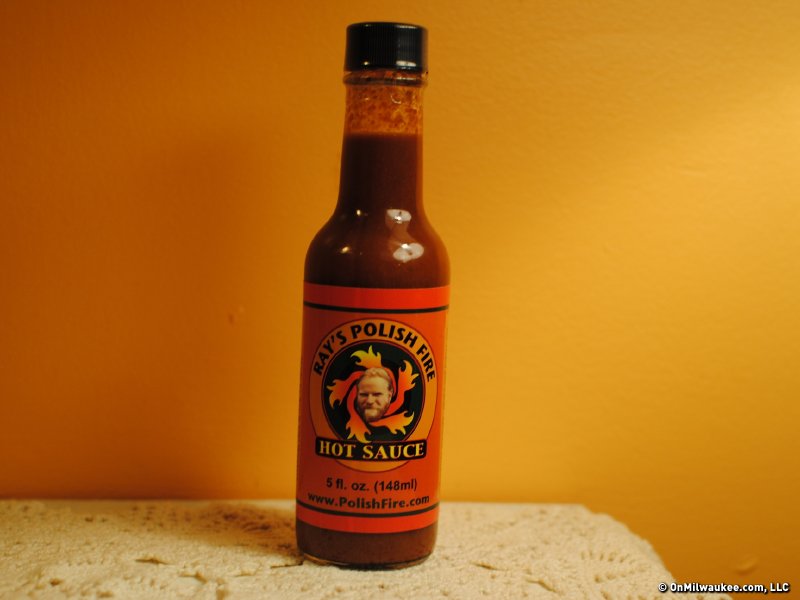Most Milwaukeeans appreciate things made in Milwaukee and believe in keeping things close to home. Even if some don't recognize the economic, environmental and personal health benefits of the "locally owned, grown and produced" ethos, growing numbers of people in Milwaukee are making these connections. Yet few are able to obtain all the products they need from producers within the city limits or even from within some slightly expanded "local" area. This begs the question, how far away can producers be from Milwaukee and still have us call them local?
The fact is, locally produced foods, like those from Milwaukee's own Simple Soyman, are only a part of the picture of healthier food options in Milwaukee stores. Our sense of what constitutes local, in many ways, must rely on a bigger picture of Milwaukee as part of a regional economy.
There are many regional food producers, including Minneapolis-based Holy Land Foods, Chicago-based Upton's Naturals and Chicago's Donkey Chips, whose company missions are in line with a "keep it local" philosophy but by necessity, or just from having a broader understanding of "local," they partake in our regional economy.
Few grocery stores in Milwaukee follow a local ethos as well, and as deliberately, as our co-ops do, and even they have expanded definitions of "local." Produce from western Wisconsin is available at the Riverwest Co-op and the Outpost Natural Foods carries many regional products.
OnMilwaukee.com recently checked in with two of these regional, family-owned, food producers to find out more about who they are and the products they make.
Raymond Weglarz and partner Viki Jo together make Ray's Polish Fire hot sauce. Ray's is made in eight gallon batches in the Keweenaw Co-op kitchen in Hancock, Mich., the upper peninsula of Michigan's Upper Peninsula (that part north of Houghton that juts out toward Canada).
Weglarz lives on 20 acres near Allouez, Mich., a bit farther north. He had been dabbling with his hot sauce recipe for a few years and two years ago, after 34 years of nursing, he quit to devote all his time to Ray's Polish Fire.
The hot sauce contains cayenne, which Weglarz says is a digestive stimulant, unlike habanero, which he says is an irritant. Every eight gallon batch has about a gallon of Japanese Ume plum vinegar, organic apple juice and lemon.
"Ray's is not cooked. It's a blend of five liquids and five herbs. The pH levels are so low, you don't have to refrigerate it," Weglarz says.
Sales of Ray's Polish Fire have doubled every year for three years in a row. It is available in every co-op in Michigan except one and the Sweet Water Cafe in Marquette, Mich., uses it as their table sauce.
"It takes a while to get rooted in a community, but we just take our time, focus on making the highest quality product we can and let it grow by word of mouth," says Weglarz.
Outpost Natural Foods started carrying Ray's Polish Fire just within the last two months.
In the middle of 2010, Outpost also started carrying Crapola granola. Crapola is a cranberry apple granola blend. A second flavor, called "Number Two," will be available at Outpost soon and Crapola's next flavor, which is purportedly top secret, is due out in summer 2012.
Brian and Andrea Strom created Crapola in Ely, Minn., in 2007, and they started selling it at a farmer's market.
"We don't have a distributor. I just sent out samples and contact info. Without any promotion or displays or advertising support, our granola survived the dreaded black hole that swallows so many new products in the food industry," says Brian.
The Stroms run Crapola alone with some seasonal hired help in a 500 square-foot facility. They make about 3,800 pounds of granola a month.
"Our own personal philosophy on nutrition is represented in our products. We obviously have a lot of fun with our marketing, but we take quality very seriously. We're making the best granola that we can. We have backgrounds in environmental education and organic farming, which have given us both the motivation and the firsthand experience to develop products that we truly stand behind," says Brian.
The Stroms believe in the benefits of whole grains, dietary fiber, natural sweeteners, "good" fats and organic ingredients.
"We oppose artificial, processed, genetically modified ingredients of any kind. That stuff is not food," says Brian.
Brian Strom is a Milwaukee native. "I miss the Brewers and friendly neighbors and ethnic music and cheese and beer and brats and the Friday fish fry with my extended family. Minnesota is great -- don't get me wrong -- but there's no place like Milwaukee. I'd like Milwaukee people to know that they are appreciated and missed. And that they should buy our granola," he says.
Royal Brevväxling is a writer, educator and visual artist. As a photo essayist, he also likes to tell stories with pictures. In his writing, Royal focuses on the people who make Milwaukee an inviting, interesting and inspiring place to live.
Royal has taught courses in critical pedagogy, writing, rhetoric and cultural studies at several schools in Wisconsin and Minnesota. He is currently Adjunct Associate Professor of Humanities at Milwaukee Institute of Art and Design.
Royal lives in Walker’s Point with his family and uses the light of the Polish Moon to illuminate his way home.



